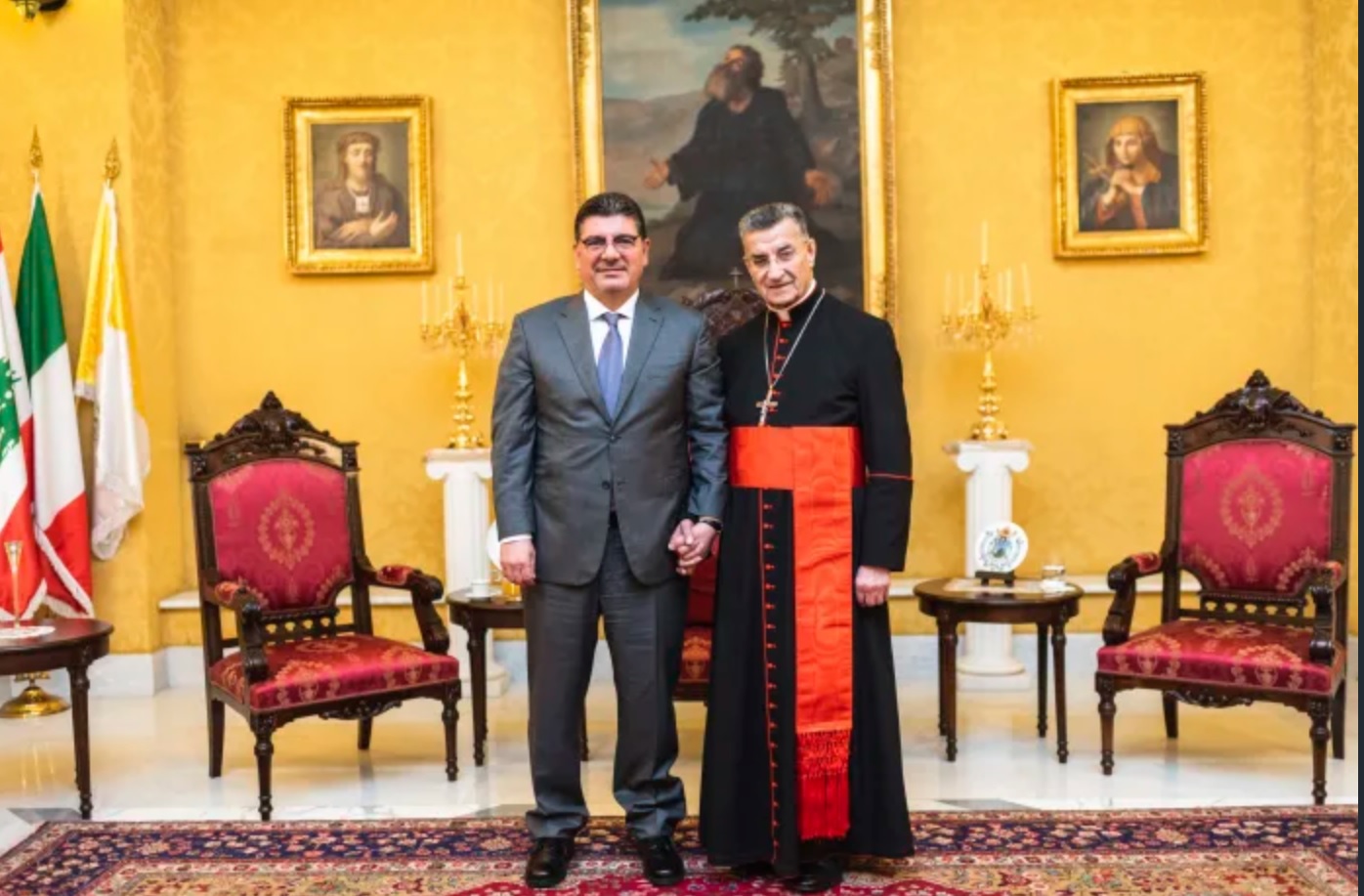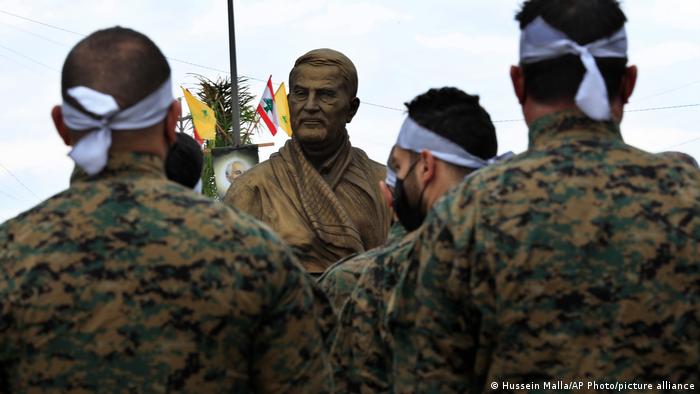by arabnews.com -- LOS ANGELES: Over 100 million viewers saw Kholood Adel, the high-profile Saudi model who’s partnered with brands such as Google and Mitsubishi, as she acted opposite Hollywood star Larry David in a commercial during the Super Bowl. All eyes were on Adel, especially given the NFL end of season finale is famous for short-film quality advertisements. “Of course, I was scared at the beginning like to see big sets and cameras but everything is scary at the beginning,” she said. “Once you break this fear you're gonna like be going.”
She hinted at several upcoming secret projects in the works that would expand her modeling career just like she did in 2020, when she was selected to join Grammy-winning songwriter Diane Warren in an ensemble anthem by MISSION, an international charity for women and children’s rights. “It’s an amazing thing to be part of this amazing project to raise awareness against violence and also it was a nice experience to work with Ms. Warren. “The rest are coming soon. I can’t really say what it is exactly,” she added.

by lbcgroup.tv -- Maronite Patriarch Bechara Rai met on Monday with Lebanese businessman Bahaa Hariri at his residence at the Maronite Institute in Rome. Discussions focused on the situation in Lebanon, mainly amid the current collapse, the absence of effective solutions and the widening political, economic and social crises. They both reiterated the importance of preserving the Lebanese constitution and resorting to it, as well as consequently the implementation of the Taef Agreement, and the holding of parliamentary elections on time in a democratic and free manner.
By Sami Moubayed -- gulfnews -- Last week, Lebanon’s government approved $18 million to hold nationwide parliamentary elections on 15 May 2022. It was only a fraction of the budget allocated for the last elections of 2018, which cost $54 million. Due to the economic collapse and steady financial meltdown, the state has very little money left at its disposal, meaning that independent candidates and political parties will have to bankroll their own campaigns, expecting little to nothing from Lebanese officialdom. This of course is music to the ears of wealth parties, like Hezbollah, Amal, and Bahaa Al Hariri, the brother of ex-Prime Minister Saad Al Hariri who is debuting in Lebanese politics next May through his election alliance Sawa Li Lubnan. Last January, Saad Al Hariri announced that he was not running for parliament, nor were any members of his Future Movement. He cited Iranian tutelage as a main reason for his withdrawal, but its an open secret in Beirut that he lacks the funds needed to bankroll a nationwide campaign for him and his supporters, having squandered his share of the Hariri family fortune since 2005. He said in publicly in a televised interview last summer: “I used to be a billionaire but no longer am.”
Bahaa Hariri, who replied Sunday to written questions sent to him by the AP from his base in London, suggested he would not work with Hezbollah. “I see Hezbollah as the failed past not the future of Lebanon. Terrorist organizations destroy countries they don’t build nations,” he said. “The people don’t need more bullets, they need bread, jobs, electricity, and a government that serves all the people.”
A leader-in-waiting
The same cannot be said for his elder brother Bahaa, however, who according to Forbes, was worth $2 billion in 2021. He is running on an anti-Hezbollah ticket, campaigning active in the streets of Beirut with billboards and door-to-door campaigns (including the delivery of heating fuel to families in need). Bahaa himself remains physically absent, speaking to voters through a screen. He has not lived in Lebanon and remains alien to grass roots voters, who identify strongly, however, with his family name and iconography of his father, the late Rafik Al Hariri. Bahaa has delegated his special envoy, Safi Kalo (a childhood friend from Sidon) to meet with potential voters and defectors from his brother’s party, or former employees or staffers who were dismissed without being paid by Saad Al Hariri. Kalo is Bahaa’s main candidate for the upcoming elections, contesting a parliamentary seat in Beirut. This month, he visited the Maronite Patriarch Beshara al-Raii, and called for implementing UN resolutions with regard to Hezbollah arms.

Beirut (AFP) – Once the economy's crown jewel, Lebanon's banks are shutting branches and laying off employees in droves, resizing to the bleak reality of a crisis they are widely blamed for. Before the onset in 2019 of a financial collapse deemed one of the world's worst since the 1850s by the World Bank, the small Mediterranean country had an oversized but prosperous banking sector. The capital Beirut was a booming regional financial hub, attracting savers keen to profit from high interest rates and banking secrecy laws. But more than two years into the crisis, the reputation of Lebanese lenders has been shredded. A dizzying currency collapse, coupled with banks imposing strict withdrawal limits and prohibiting transfers abroad, has left ordinary depositors watching on helplessly as their savings evaporate. And yet bankers stand accused of bypassing those exact same capital controls -- stoking the crisis by helping the political elite squirrel billions of dollars overseas. Their trust destroyed, citizens now keep new income well away from the banks, which in turn are deprived of money they could lend. "The whole banking system today is made up of zombie banks," said economic analyst Patrick Mardini. "They don't work as banks anymore -- they don't give loans, they don't take new deposits."
'Abandoned country'
As a result, the industry has been forced to scale back its operations. In 2019, Lebanon ranked second in the region for bank branches per 100,000 people, according to the World Bank, and held a total of around $150 billion in deposits. Deposits by Arab investors and Lebanese expatriates propelled the banking sector to peak at three times the value of national economic output. But more than 160 branches have closed since the end of 2018, leaving a total of 919 branches operating across the country, according to the Association of Banks in Lebanon (ABL). The number of employees has dropped by around 5,900, reducing the sector's workforce to roughly 20,000 late last year. "Lebanon is an abandoned country," ABL chief Salim Sfeir told AFP, referring to negligence by the nation's authorities.

by english.aawsat.com -- The Iran-backed Hezbollah party's flying of a drone from Lebanon over to Israel this week was widely condemned by officials. The party said on Friday that it flew the aircraft over northern Israel, where it hovered for 40 minutes, crossing 70 kilometers before returning to Lebanon. The move triggered Israel's air defenses and the scrambling of fighter jets. Its jets flew at low altitude over Beirut, terrifying the people who are still reeling from the 2020 port explosion. On Thursday, Israel said it had downed a drone that belonged to Hezbollah after it crossed into Israeli air space. Earlier this week, Hezbollah said it had started producing its own drones in Lebanon. Head of Lebanon's Progressive Socialist Party (PSP) Walid Jumblatt took to twitter to mock the state of affairs in Lebanon. He noted that the country fails to generate 24-hour electricity and yet Hezbollah has the technology to manufacture drones. "The recovery plan with the IMF is becoming clear. The senior advisors from the Lebanese team recommended adopting the Lebanese pound and investing it in national companies, such as Electricite du Liban [the state electricity company], the highest example of success," he said mockingly. "I suggest that we invest the depositors' money in the local production of drones, rockets or explosives because they bring better returns," he added.
Other officials slammed Hezbollah for launching the drone and boasting that it was now producing the aircraft in Lebanon. Former President Michel Suleiman said: "Under the slogan 'made in Lebanon' and amid the failure to find hope, a dignified living and alternative energy, the crisis-hit nation can find prosperity in the production of drones, precision-guided missiles, captagon, perpetual garbage, taxes... and everything that takes us to the lowest of lows." Lebanese Forces MP Imad Wakim tweeted an image of Hezbollah leader Hassan Nasrallah with a play on words about drones, saying he was being controlled by Iran. Retired officer and opposition parliamentary elections candidate George Nader said: "The state has collapsed and there is a general sense of degradation and indifference."
Khazen History


Historical Feature:
Churches and Monasteries of the Khazen family

St. Anthony of Padua Church in Ballouneh
Mar Abda Church in Bakaatit Kanaan
Saint Michael Church in Bkaatouta
Saint Therese Church in Qolayaat
Saint Simeon Stylites (مار سمعان العامودي) Church In Ajaltoun
Virgin Mary Church (سيدة المعونات) in Sheilé
Assumption of Mary Church in Ballouneh
1 - The sword of the Maronite Prince
2 - LES KHAZEN CONSULS DE FRANCE
3 - LES MARONITES & LES KHAZEN
4 - LES MAAN & LES KHAZEN
5 - ORIGINE DE LA FAMILLE
Population Movements to Keserwan - The Khazens and The Maans
ما جاء عن الثورة في المقاطعة الكسروانية
ثورة أهالي كسروان على المشايخ الخوازنة وأسبابها
Origins of the "Prince of Maronite" Title
Growing diversity: the Khazin sheiks and the clergy in the first decades of the 18th century
Historical Members:
Barbar Beik El Khazen [English]
Patriach Toubia Kaiss El Khazen(Biography & Life Part1 Part2) (Arabic)
Patriach Youssef Dargham El Khazen (Cont'd)
Cheikh Bishara Jafal El Khazen
Patriarch Youssef Raji El Khazen
The Martyrs Cheikh Philippe & Cheikh Farid El Khazen
Cheikh Nawfal El Khazen (Consul De France)
Cheikh Hossun El Khazen (Consul De France)
Cheikh Abou-Nawfal El Khazen (Consul De France)
Cheikh Francis Abee Nader & his son Yousef
Cheikh Abou-Kanso El Khazen (Consul De France)
Cheikh Abou Nader El Khazen
Cheikh Chafic El Khazen
Cheikh Keserwan El Khazen
Cheikh Serhal El Khazen [English]
Cheikh Rafiq El Khazen [English]
Cheikh Hanna El Khazen
Cheikha Arzi El Khazen
Marie El Khazen
